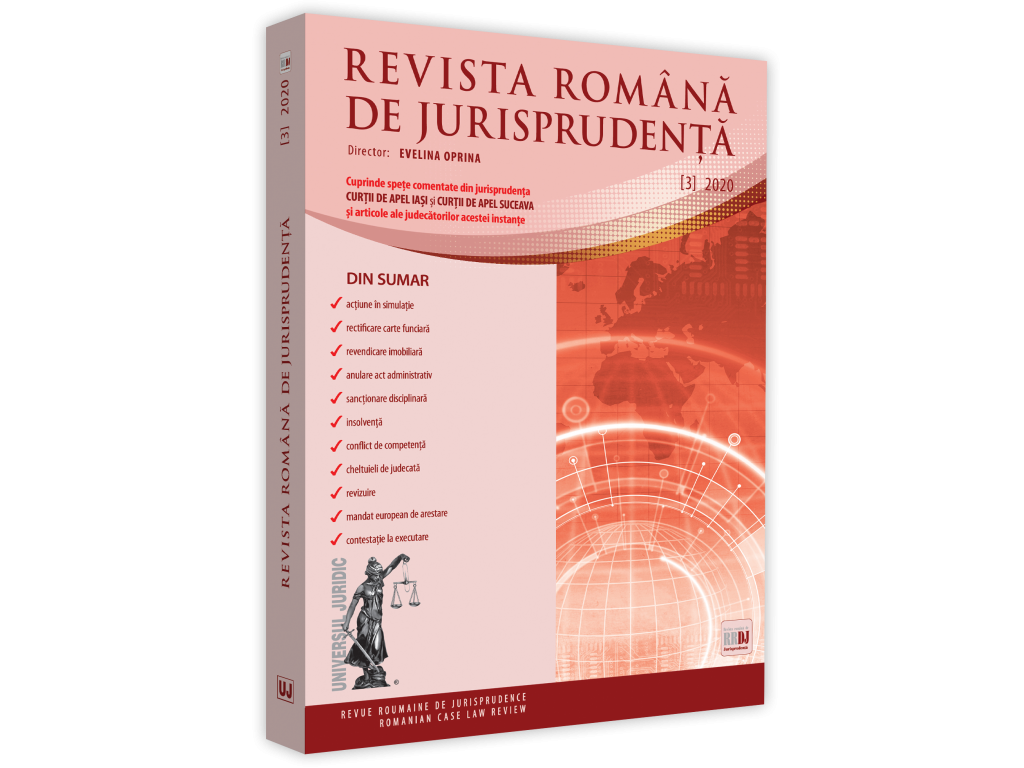The date when the continued crime was committed. A new offence committed by the accused after conditional release and not found during the supervision term. Postconviction recidivism. Sanctions
DREPT PENAL ŞI DREPT PROCESUAL PENAL
Abstract
The court did not admit the arguments detailed by the first court on holding the state of post-service recidivism by reference to the continued offence of “traffic of persons”, whereas the first court did not consider the consumption date or the termination date but held that the date of reference to determine the type of recidivism is when the second material act was carried out, the date when the legal unity of crime occurred. This approach is contrary to the issues established by the Decision of the Plenum of the Supreme Court no. 1 of 20 June 1987 on the date when the offense is considered to have been committed and on the legal effects of the continuous and continuing offenses while committed, according to which the consequences of the continuing offenses relating to the determination of recidivism occur when the components of the offence are met, according to the law, the perpetrator can be prosecuted. Relevant to the interpretation to be given to said expression is the very example given by the supreme court in the grounds: “the manager commits a crime by taking money or goods from the first act, whether, in fulfilling the same decision, keeps committing other such acts at various periods of time”. Consequently, the time when the standard components of a specific offence are met is the time when said offence is consumed, irrespective whether other actions are committed later making that the criminal activity be subsumed entirely to the legal unity of the continuing offence. Concerning the legal treatment to be set on the accused by reference to the state of post-conviction recidivism, the Court held the provisions of Art. 104 para. (2) of the New Criminal Code, that “if after the release the convicted person commits a new crime, that was found during the supervision term and for which the court rendered a conviction to imprisonment, even after the expiration of said term the court will revoke the release and order the remaining punishment to be served. The punishment for the new offense shall be determined and served, as the case may be, in accordance with the provisions of recidivism or intermediate plurality. Interpreting per a contrario the aforementioned legal provisions reflects that, in the event that the deed is not discovered within the term of supervision, the provisions of art. 104 para. (2) of the New Criminal Code, the previous punishment being considered as served at the fulfillment of the duration for which it was set, therefore the sanction provided by the provisions of Art. 43 para. (1) of the New Criminal Code are inapplicable, as they are subsequent to the provisions of Art. 104 para. (2) final tenet of the New Criminal Code. The fact that the previous punishment is not deemed served and the revocation of the conditional released and the order to execute the remaining punishment are no longer possible may not change the type of recidivism and the act remains committed, from a temporal perspective before the previous punishment was considered served. Post-service recidivism may not be deemed applicable in this case, since it presupposes, from the point of view of objective reality, placing the criminal act (its consumption) after the moment when the previous punishment was considered served. In the present case, the act is committed before the previous sentence is considered served, but, by the express will of the law, the accused can no longer be sanctioned by revoking the previously ordered release, ordering the service of the rest and adding it to the punishment established for the offence committed in recidivism, and this state of aggravation will be reflected exclusively in the operation of judicial individualization of the punishment, within the limits provided by law. To admit that in the previous hypothesis the type of recidivism changes and post-incarceration recidivism instead of post-conviction recidivism is applicable triggers the aggravation of the legal status of the accused due to a circumstance independent from its will, out of the data specific to the criminal act, related to the manner in which the judicial bodies are notified or notify ex officio of an offence, which may not be admitted.








